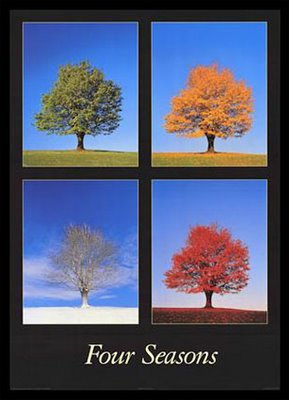Firebird Chamber Orchestra provides high-voltage jump to Vivaldi

In the collective hands of soloist Adda Kridler and the one-year-old Firebird Chamber Orchestra, Vivaldi’s hopelessly overplayed Four Seasons emerged Friday night as the bizarrely beautiful piece it is, full of weird tensions, strange dissonances, sunbursts and lightning.
The orchestra was founded in 2008 as a sister ensemble of the successful Miami chamber choir, Seraphic Fire, with the idea of accompanying the singers in choral works as well as performing instrumental works on its own. In its concert at First United Methodist Church of Coral Gables, the orchestra performed for the first time this season without the choir, as Patrick Dupré Quigley, founder and artistic director of both ensembles, attempts to get the orchestra to stand on its own.
First, the bad news: the orchestra is not yet up to the level of the choir. The violins had persistent intonation problems that will have to be fixed for Firebird to take a place in the front rank of South Florida’s classical institutions.
But it was clearly full of first-rate musicians, with a surprisingly full, well-balanced tone for such a small ensemble. In the first two works of the program, Vivaldi’s La Folia Trio Sonata and Arensky’s Variations on a Theme by Tchaikovsky, the 13 string players achieved a tone that was both rich and transparent. In La Folia, a series of variations on a famous old theme, the playing was crisp in the rapid sections, with a unity of style and phrasing.

Adda Kridler
But it was in the Four Seasons that the orchestra was most impressive. Handling the solo part was Firebird’s concertmaster, Adda Kridler, a superb violinist whose fine technique and fiery style brought out all the brilliance of Vivaldi’s violin writing. She blazed through the runs and rapid bow movements without any sign of difficulty, even though some of the outer movements were taken at hair-raising speed. At these tempos, many violinists would be content to just play all the notes, but Kridler shaped every phrase.
Conducting from the harpsichord, Quigley drew from the orchestra a performance of great originality yet one that seemed truer to the music than many of the standard performances available on recordings. There were sudden crescendos, unexpected stops and a sense that not a single note was taken for granted.
The chords that accompanied the solo part in the mysterious second movement of Summer created a mood of great tension. The stormy last movement was played with vigor and bite. The last movement of Autumn, often played with the grace of a Venetian hoe-down, emerged as a fleet and energetic evocation of a hunt. The opening of Winter, which the orchestra launched into without a break from Autumn, sounded almost contemporary in its dissonances, and the motifs meant to evoke chattering teeth came off with such a brittle texture you could feel the cold in your bones.
Next month, the orchestra will tackle the Bach Brandenburg concertos No. 3 and No. 5, works nearly as well known as the Four Seasons, but that could also benefit from a fresh approach.
The program repeats tonight at 8 p.m. at All Saints Episcopal Church of Fort Lauderdale and Sunday at 4 p.m. at Temple Emanu-El of Miami Beach. Call 305-285-9060 or go to www.SeraphicFire.org.
Posted in Performances
Leave a Comment
Sat Jan 16, 2010
at 1:33 pm
No Comments